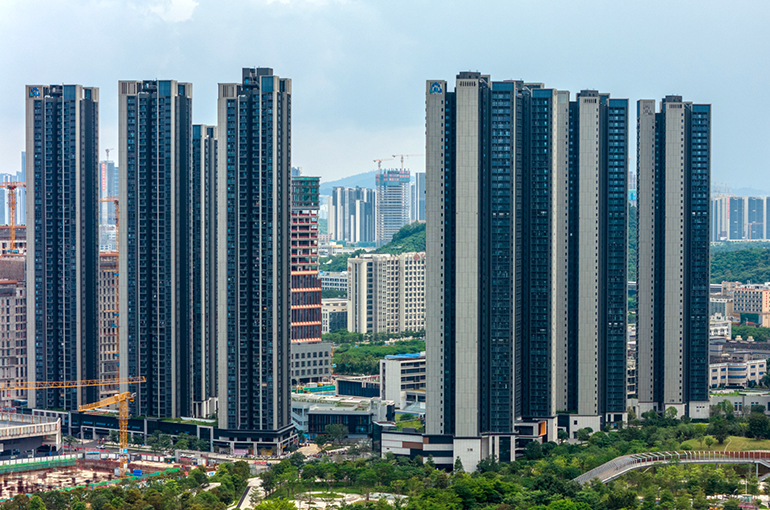 Builders Fret About Dearth of Housing Inventory as Shenzhen’s Property Market Picks Up
Builders Fret About Dearth of Housing Inventory as Shenzhen’s Property Market Picks Up(Yicai) Nov. 13 -- Boosted by recent local government policies, confidence in Shenzhen’s real estate market has rebounded, with some projects selling out on launch day, leaving developers delighted but concerned about dwindling inventory.
A marketing manager at one project in the southern Chinese city told Yicai that apartments in the development were selling too quickly and that the builder should release more units into the market.
Over 100 units sold within 36 hours of the Shenzhen government easing its property market policies at the end of last month, with the available units having almost sold out, the manager noted. Sales have tripled or quadrupled along with the number of viewings, he said.
“We didn’t expect the project to sell out this fast,” a sales agent for another development in the city said. “We recently launched a relatively small project, and initially estimated that selling 60 percent would be good. Unexpectedly, the apartments sold out on the opening day.”
Property sales in Shenzhen soared almost two-and-a-half-fold in October from September to 4,153 units, according to the latest data. It is also the first time that monthly transactions have topped 4,000 since December 2021.
But due to the market downturn in recent years, some developers now face the predicament of having nothing more to sell. The aforementioned marketing manager has applied to his head office to sell 60 additional apartments now that were not due to hit the market until next year. They will be project’s last that can meet pre-sale standards before the end of the year.
Shenzhen’s new home sales area rose 12 percent in October from September and soared 65 percent from a year ago, while that in other major cities -- Beijing, Shanghai, and Guangzhou -- fell sharply, according to market research firm CRIC.
Shrinking inventory is a common problem for private developers that have been buying less land and offloading existing projects to survive in recent years. For instance, Shimao Group, which had a large number of prime land assets in Hong Kong as well as Shanghai, Guangzhou, and other large cities, has sold the development rights to raise funds in bid to avoid defaulting on debt.
One developer whose average monthly sales were in the tens of billions of Chinese yuan, equivalent to billions of US dollars, only recorded revenue of a few hundred million yuan in October, a company insider told Yicai. Once that project sells out, it will have nothing more to offer to potential buyers.
Editors: Tang Shihua, Kim Taylor